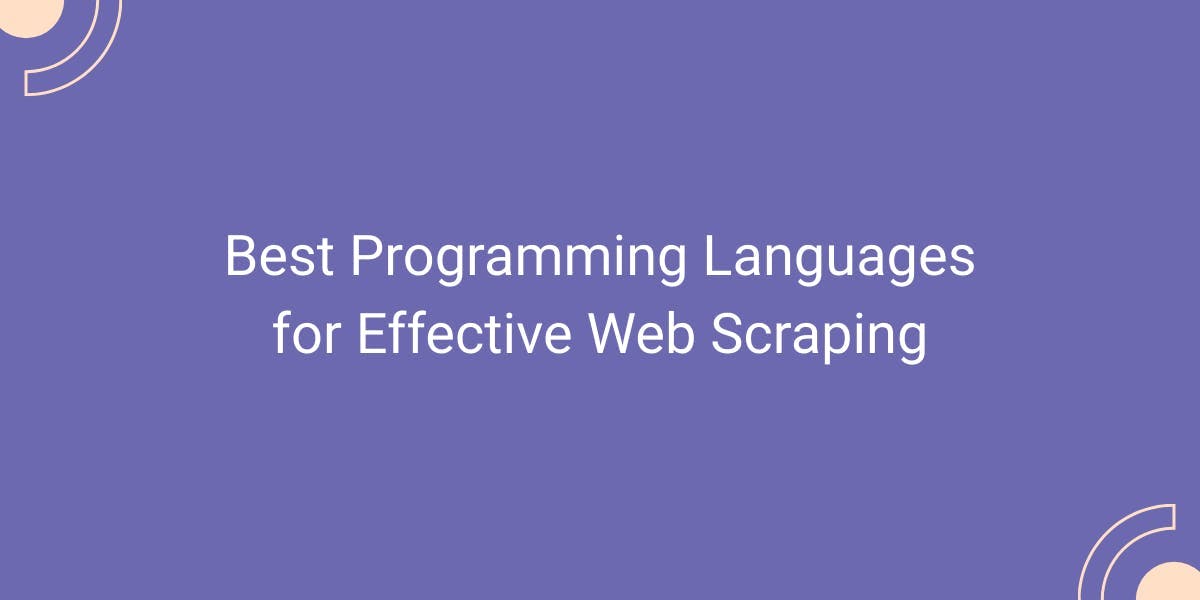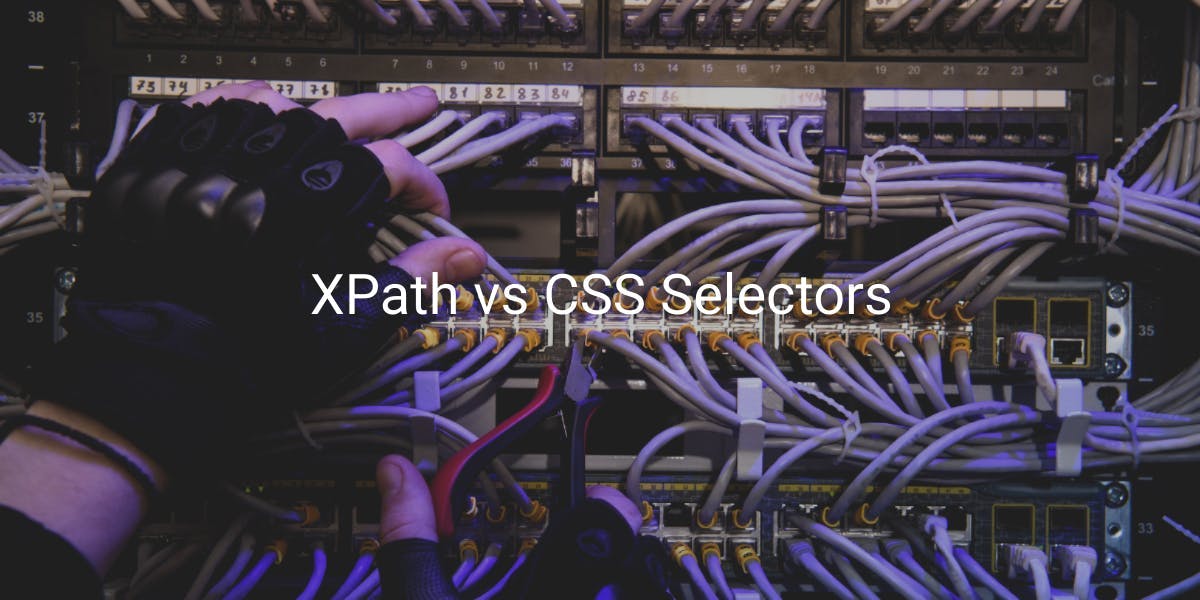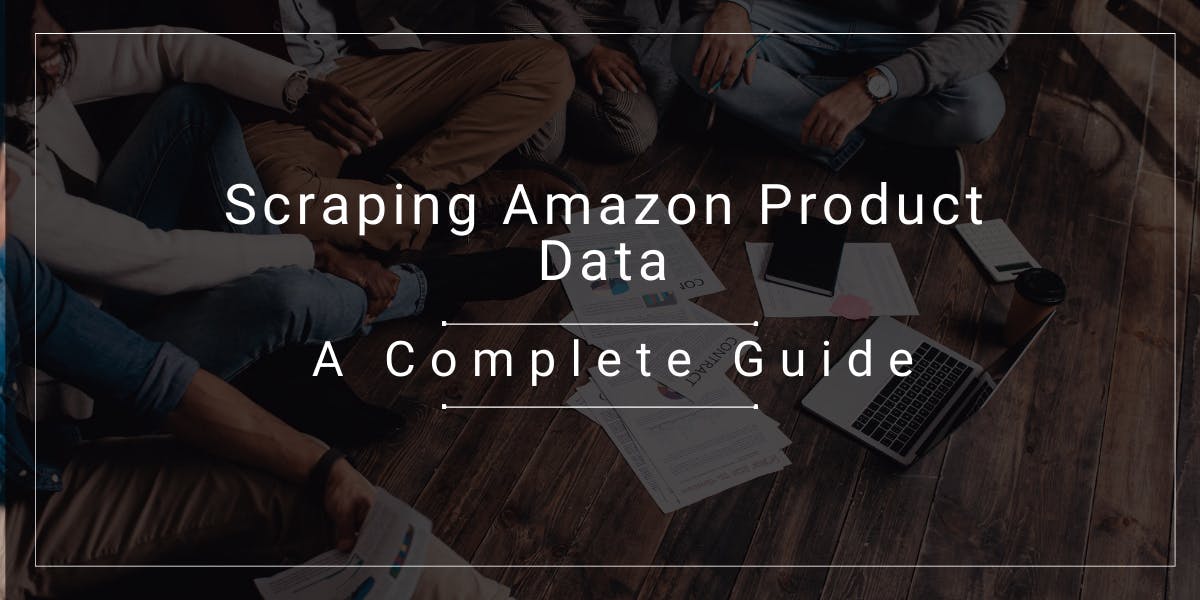Best Programming Languages for Effective Web Scraping
Flipnode on Jun 07 2023

Web scraping has had a profound impact on modern businesses, providing a solid foundation for data gathering in various industries. Its ability to collect and analyze large amounts of data for analysis, forecasts, and monitoring is invaluable. However, the key to its success lies in choosing the right programming language for efficient implementation. Among the numerous options available, Python, JavaScript (specifically Node.js), Ruby, PHP, C++, and Java emerge as the top choices for effective web scraping projects, widely recognized for their popularity and suitability.
1. Python
When it comes to web scraping, Python is the preferred choice for many developers, and for good reason. Python excels in meeting the requirements of web scraping operations, offering efficiency across various data extraction processes. Unlike other languages that may specialize in specific areas, Python covers almost all aspects of data extraction with ease.
Python's advantages extend beyond its versatility. The language itself is designed for simplicity, with no need for semicolons or curly braces. It allows for direct use of variables, making it highly convenient for executing different sets of data within the same program.
Python's frameworks also play a vital role in web scraping tasks. Beautiful Soup, a popular Python library, simplifies data extraction from HTML or XML web pages, even if they are poorly written. With just a few lines of code, you can start a scraping job effortlessly.
Another notable framework is Scrapy, which offers impressive features for scalable web scraping. It handles tasks such as validation, multithreading, crawling, and more.
However, the advantages of Python in web scraping go beyond what has been mentioned so far. To avoid an exhaustive list, let's compare Python to another commonly used language for web scraping, and explore its unique aspects.
Python vs R for web scraping
R, like Python, is commonly used by statisticians and data analysts for data collection and analysis. While there are similarities between the two languages, such as being open source, having large communities, and offering a wide range of libraries for data extraction, there are also key differences to consider.
Python can be considered a general-purpose language, suitable for various applications. On the other hand, R is specifically tailored for statistical analysis, making it particularly well-suited for web scraping tasks involving statistical analysis and mathematical formulas. R excels in providing quality plots and symbols for data visualization.
In terms of programming paradigms, R is more functional, while Python is object-oriented. Additionally, R has built-in data analysis capabilities, while Python relies on external packages for data analysis.
When choosing between Python and R for web scraping, it ultimately depends on your specific requirements. In most cases, Python's versatility and general-purpose nature make it a top choice for web scraping tasks. However, if you require more advanced data visualization and analysis features, R may be the superior option.
2. JavaScript
JavaScript, without the addition of Node.js, would have limited capabilities for web scraping, as its original purpose was to provide basic scripting abilities for browsers. While these abilities allowed for some custom interactivity with users, they had their limitations.
Fortunately, Node.js changed the game by bringing JavaScript to the server-side. This shift allowed Node.js to perform tasks like opening network connections and storing data in databases, expanding its potential for web scraping. These new features positioned Node.js as a strong contender among the best programming languages for effective web scraping.
Key advantages of using Node.js for scraping include:
- Utilizing multiple CPU cores by running multiple instances of Node.js simultaneously.
- Abundance of built-in libraries.
- Well-suited for real-time applications, streaming, and live web scraping.
- Designed to handle API and socket-based activities, making it an ideal choice for integrating APIs with your web scraper.
Similar to R, JavaScript with Node.js excels in specific use cases involving real-time activities, APIs, and socket-based implementations. However, it's important to note that the advantage of one process per CPU core in Node.js can also be a limitation. Heavy-duty data collection may be slow and inefficient due to the lack of processing power.
Nevertheless, JavaScript and Node.js remain popular choices for effective web scraping because not every scraping project involves heavy processing. For simpler web scraping tasks, Node.js, with its lightweight and flexible features, continues to be a great choice.
3. Ruby
When it comes to simplicity, Ruby cannot be overlooked. Its ease of use is arguably its most appealing aspect, making it a highly sought-after open-source programming language. However, Ruby offers benefits beyond its straightforward syntax and accessible features.
One notable advantage of Ruby is the Nokogiri library, which provides a simpler way to handle broken HTML fragments. By combining it with other Ruby extensions like Loofah or Sanitize, you can efficiently address issues related to broken HTML.
But Ruby's usefulness in web scraping extends beyond handling broken HTML. It can also:
- Facilitate the setup of your web scraper using tools like HTTParty, Pry, and Nokogiri.
- Streamline and accelerate the creation of unit tests with its exceptional testing frameworks.
Interestingly, Ruby outperforms Python in terms of cloud development and deployment. This can be attributed to the Ruby Bundler system, which effectively manages and deploys packages from GitHub. Overall, Ruby is an excellent choice if your requirements revolve around smooth and straightforward web scraping.
4. PHP
Unlike some of the languages discussed in this article, PHP was not originally designed with scraping as one of its primary use cases. Its main purpose is web development, specifically server-side scripting. While PHP allows developers to create dynamic web pages quickly and easily, it offers limited support for web scraping. However, this doesn't mean that PHP is entirely useless for scraping tasks.
PHP does have tools and libraries that can enhance its capabilities as a scraping language, such as Simple HTML DOM Parser, Goutte, and PhantomJS. Additionally, PHP is one of the most widely learned languages, with many coders having experience using it.
In summary, if your scraping project requirements are simple and you are already proficient in PHP, using this language can be a valid choice. However, if your project demands more complexity or requires strong support for multithreading and asynchronous operations, PHP's limitations in these areas make it a subpar choice for web scraping.
5. C++
C++ has a long history since the 80s and offers several features that make it an attractive language even today. Its high performance, efficient programming, control over memory management, and extensive library support are just a few examples. Being a general-purpose language, C++ can also be used for web scraping tasks, but the question arises: how well does it fare?
Unfortunately, C++ faces some similar challenges to PHP, such as:
- Parsing HTML: Both PHP and C++ need to parse HTML to extract relevant information. However, the complexity and non-standard nature of HTML can make parsing difficult for both languages.
- Handling dynamic content: Modern websites often rely on dynamic content generated by JavaScript or other scripting languages. This can pose challenges for scraping as the content may not be immediately available when the page loads.
- Scalability: Both PHP and C++ need to handle large amounts of data when scraping, including managing multiple requests and processing data efficiently.
While some of the strengths of C++ mentioned earlier align with the requirements of web scraping projects, such as high performance for processing large data volumes, there are considerations to keep in mind.
The availability of libraries can be beneficial, with some specifically designed for scraping tasks. For example, the libcurl library offers a user-friendly interface for making HTTP requests, and the HTML Tidy library can assist in cleaning up and parsing HTML data.
Overall, despite these advantages, C++ may not be the optimal choice unless you already have experienced coders proficient in the language. Learning and implementing C++ can be time-consuming and costly, making it less practical for web scraping unless you have expert resources readily available.
6. Java
Java, being one of the most popular programming languages, remains a prevalent choice for web scraping due to its extensive toolset, libraries, and external APIs dedicated to simplifying scraping tasks.
One notable tool in Java is JSoup, which offers a straightforward API for extracting and manipulating data from HTML and XML documents with efficiency. Additionally, JSoup is actively maintained and updated, suggesting that any existing limitations or issues are likely to be resolved in future versions.
Now, let's compare Java to Python, the commonly regarded top language for web scraping.
Java vs Python
When it comes to speed, Python has a significant advantage over Java. Python is a scripted language, while Java is compiled. However, the winner may change if simplicity and beginner-friendliness are crucial criteria. Python shines in this aspect, as it is known for its ease of use, especially for beginners.
In contrast, Java has a more complex syntax and concepts such as strong typing, which helps prevent errors but can make it challenging for beginners to write code quickly. Both languages, however, offer a wide range of high-quality libraries for data gathering, ensuring smooth scraping projects.
Conclusion
The best programming language for effective web scraping depends on the specific case at hand. While Python is often considered the king of web scraping languages, it may not necessarily be the optimal choice for everyone. Those experienced in C++ might find that its classic challenges, such as complexity and expensive implementation, are less relevant to their needs. Similarly, this applies to other languages as well. While Python is commonly recommended for web scraping tasks, it's essential to thoroughly assess your requirements and consider if there might be a more suitable programming language for your specific use case.



